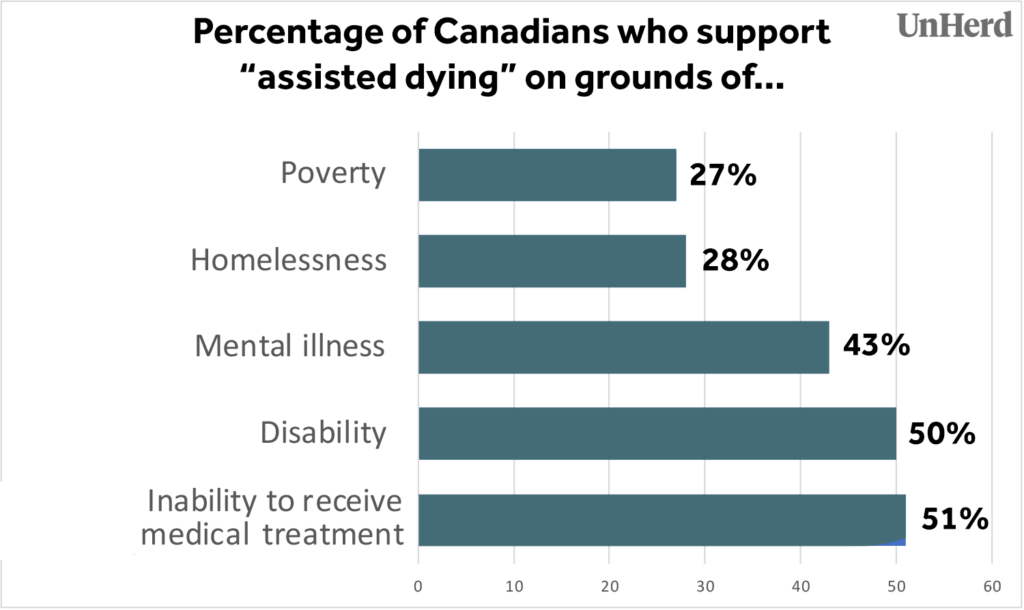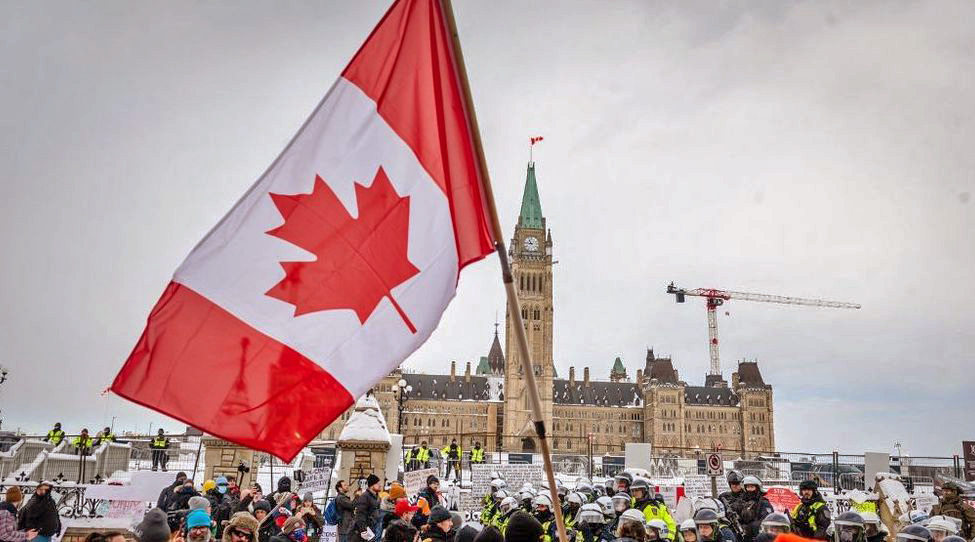Over a quarter of Canadians believe that people should have access to euthanasia because of poverty, a new survey has found.
Currently, Canada’s federal guidelines for medical assistance in dying include having a grievous and irremediable medical condition, making a voluntary request for medical assistance in dying that is not the result of outside pressure or influence, and giving informed consent to receive medical assistance in dying.
But according to research by Research CO., a Canada-based public opinion researcher, over a quarter of the country would be content with a further loosening of the rules. Among Canadians, 27% believe that medical assistance in dying should be extended to people in poverty — a figure that rose to 41% among those aged 18-34 — while 28% agreed that assistance should be offered on the grounds of homelessness, 43% for mental illness, and 50% for being disabled.

Since Canada legalised euthanasia in 2016, the country has gone on to become one of the most permissive euthanasia regimes in the world. In 2021, the Canadian parliament enacted Bill C-7, a sweeping euthanasia law which repealed a requirement that only those suffering from a terminal illness whose natural death was “reasonably foreseeable” could request euthanasia. Now, anyone suffering from an illness or disability which “cannot be relieved under conditions that you consider acceptable” can freely use medical assistance in dying.
Through the government’s MAID programme, which includes both assisted suicide (when providers give patients the means to end their own lives), and euthanasia (when a medical practitioner directly administers a patient’s lethal injection), medically assisted deaths have soared. According to official Government statistics, there were 12,689 written requests for MAID in 2021, 31.3% more than in 2020, which resulted in 10,029 medically assisted deaths that year (a 34.7% rise from 2020).
Astonishingly, medically assisted deaths accounted for 3.3% of all deaths in Canada in 2021. For comparison, in the state of California, which has a similar population (approximately 40 million) and which legalised euthanasia the same year as Canada, only 486 people died through the state’s assisted dying programme.
Towards the end of last year, Canada’s MAID programme came under criticism for allegedly driving citizens into assisted suicide on the grounds of poverty or lack of healthcare. Stories included two separate cases of cash-strapped women suffering from chronic health conditions who successfully applied to end their lives. Elsewhere, four Canadian military veterans were allegedly “pressured” to opt for medically-assisted death by a now-suspended Veterans Affairs Canada caseworker.
The latest research from MAID shows that over seven in ten Canadians (73%) are pleased with the status quo, believing that the right policies are in place to allow people to seek medical assistance in dying. This is roughly the same percentage compared to January 2021, when 70% agreed with the statement.
Yet a significant minority want the country to go even further, with one in five Canadians (20%) believing that medical assistance in dying should always be allowed, regardless of who requests it, versus 12% who say it should never be permitted.











Join the discussion
Join like minded readers that support our journalism by becoming a paid subscriber
To join the discussion in the comments, become a paid subscriber.
Join like minded readers that support our journalism, read unlimited articles and enjoy other subscriber-only benefits.
Subscribe